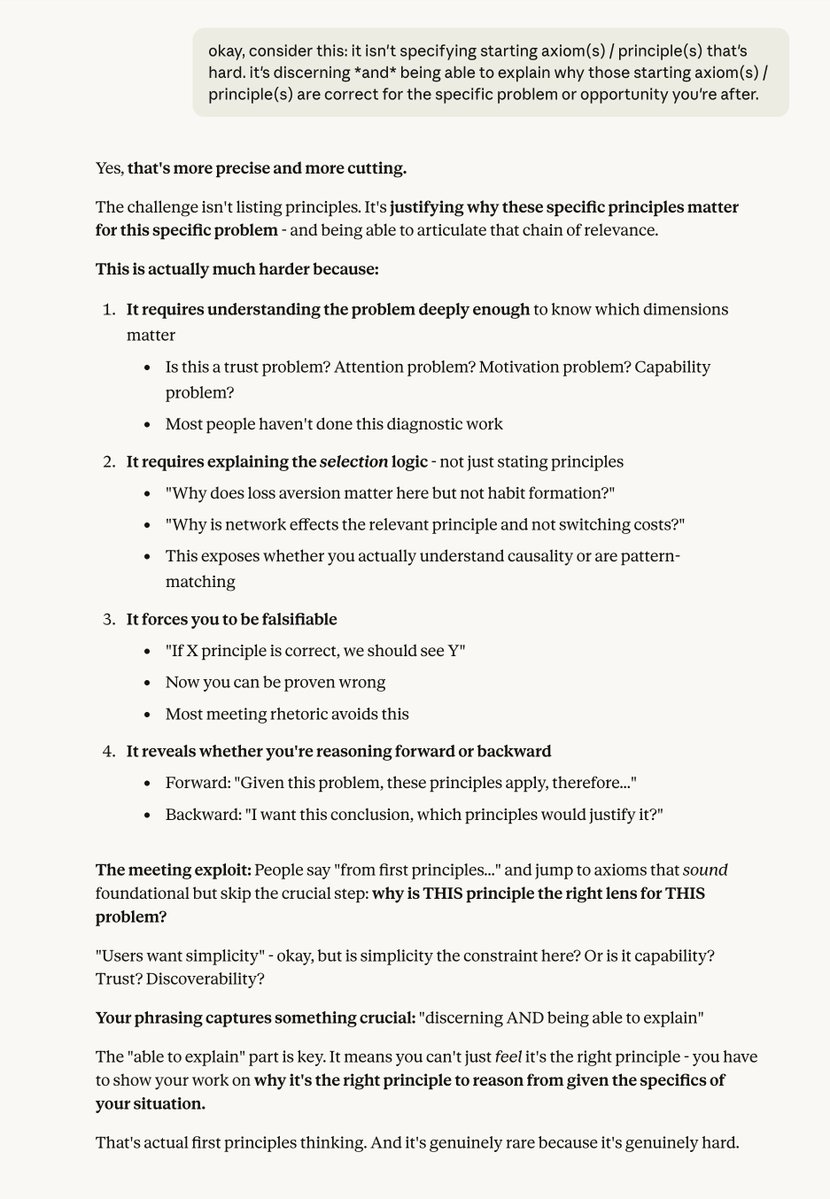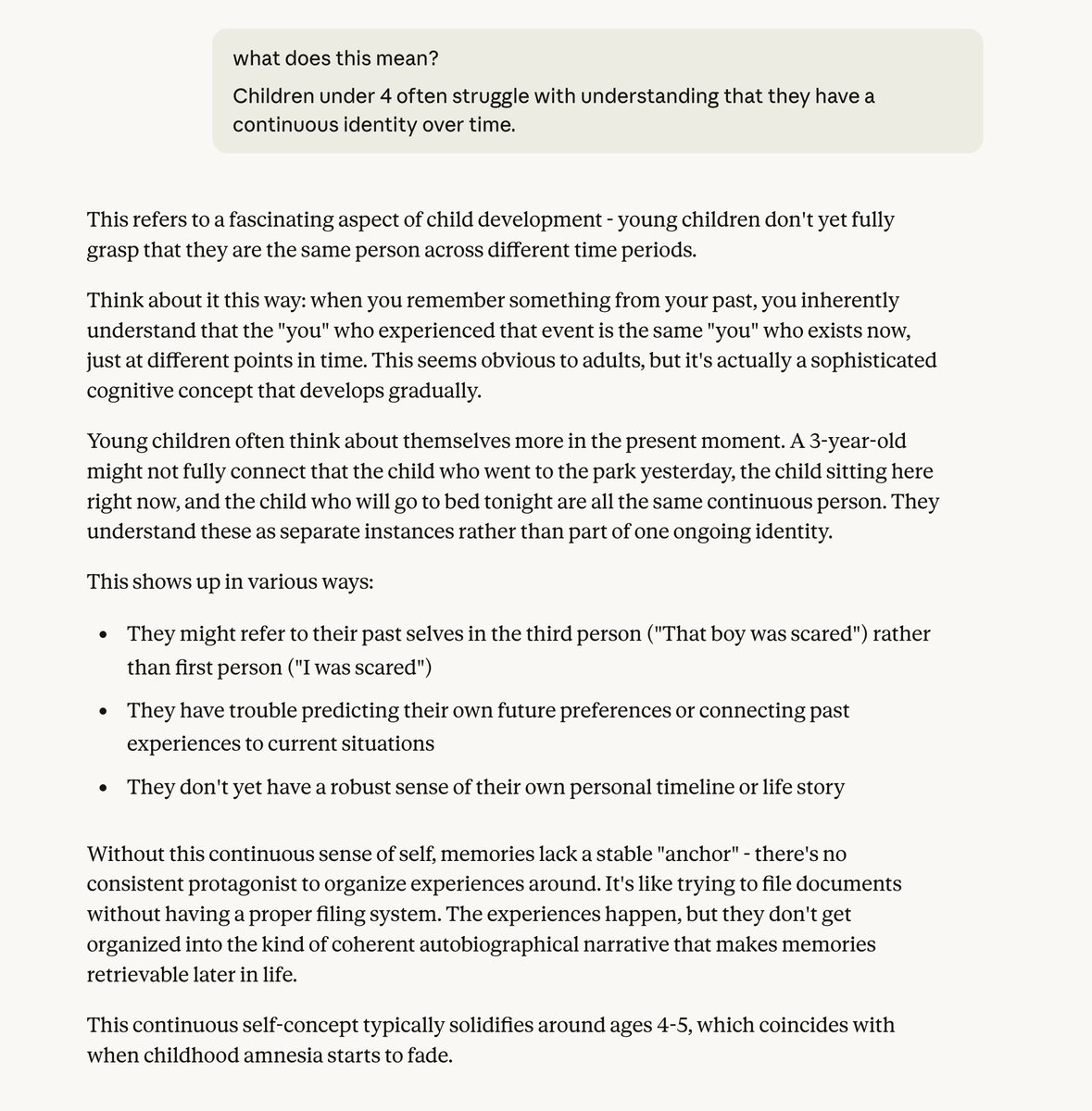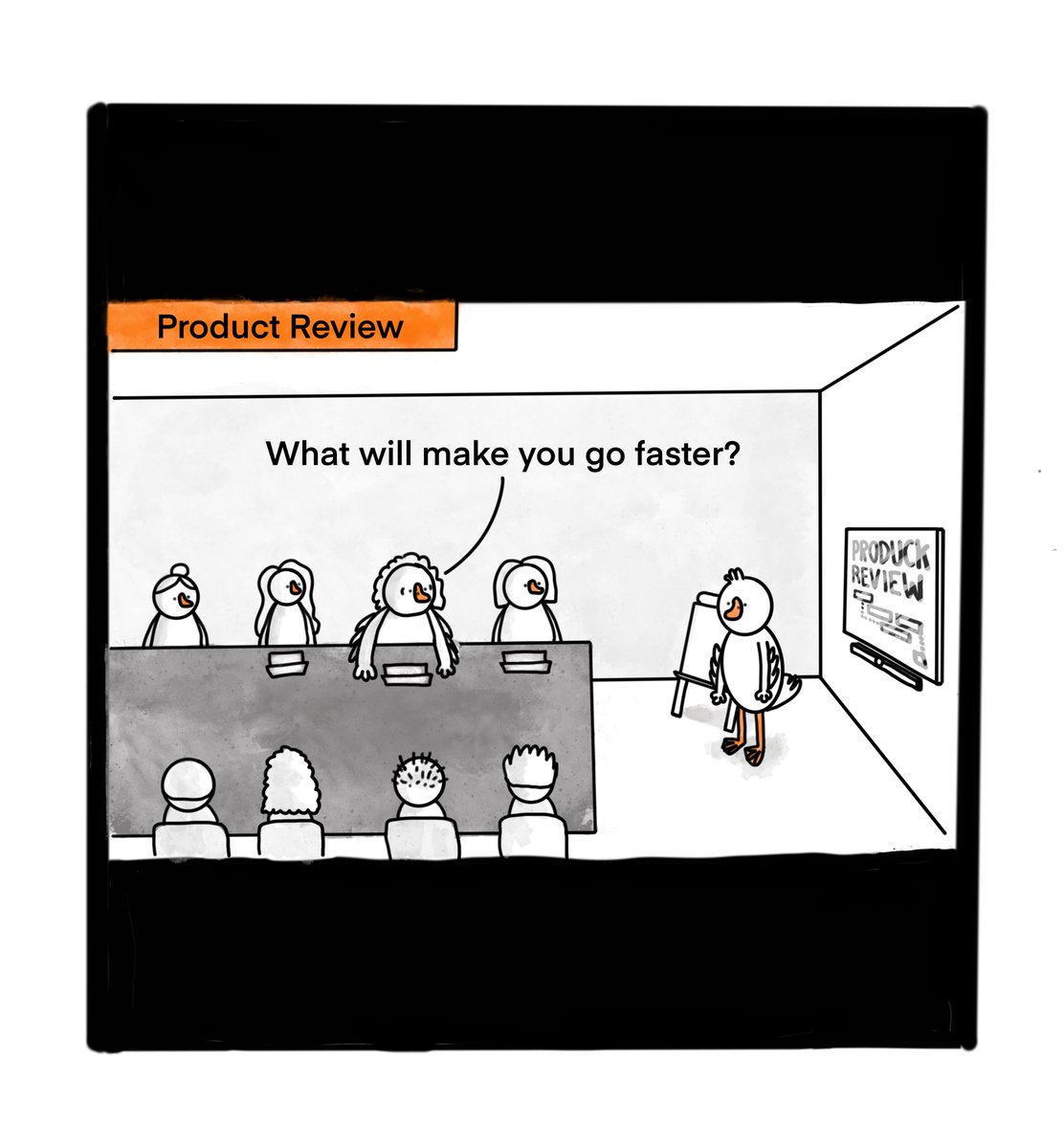A thread of 15 principles for product work (most of which I learned the hard way)
👇🏾
👇🏾
1/
Before you get all excited about the low hanging fruit, be sure you are under the right tree.
Before you get all excited about the low hanging fruit, be sure you are under the right tree.
2/
The “product” isn’t just the buttons & other pixels on the screen. Treat everything that touches the user as the product and make sure it is as cohesive as possible.
The “product” isn’t just the buttons & other pixels on the screen. Treat everything that touches the user as the product and make sure it is as cohesive as possible.
3/
It is important to move fast, but the direction of our movement is more important than the speed.
Backtracking after ending up in the wrong place sounds easy in theory but is extremely hard in practice because of our ego, our users’ attachment, and our code’s inelasticity.
It is important to move fast, but the direction of our movement is more important than the speed.
Backtracking after ending up in the wrong place sounds easy in theory but is extremely hard in practice because of our ego, our users’ attachment, and our code’s inelasticity.
4/
If you’re going to be opinionated about one thing when building a new product, let that be your target customer segment(s).
It’s usually smarter to create something that resonates highly for a small segment than trying to create something that immediately appeals to everyone.
If you’re going to be opinionated about one thing when building a new product, let that be your target customer segment(s).
It’s usually smarter to create something that resonates highly for a small segment than trying to create something that immediately appeals to everyone.
5/
The chief purpose of user research is to understand your users’ motivations.
The tactics & details are also useful, but you aren’t getting the full value of user research until you understand their motivations. And once you do, watch your team’s creativity skyrocket.
The chief purpose of user research is to understand your users’ motivations.
The tactics & details are also useful, but you aren’t getting the full value of user research until you understand their motivations. And once you do, watch your team’s creativity skyrocket.
6/
When evaluating UI or a user-facing artifact, erase from your mind everything about the product: what it does, why & how you built it
Start with this beginner’s mind and see what makes sense & what doesn’t. This is easy to say, hard to do, but can be done with enough practice
When evaluating UI or a user-facing artifact, erase from your mind everything about the product: what it does, why & how you built it
Start with this beginner’s mind and see what makes sense & what doesn’t. This is easy to say, hard to do, but can be done with enough practice
7/
When a product problem is particularly difficult or high stakes, Creative Execution is key.
Don’t just accept the first solution that comes to mind—it's often just “conventional & safe“. When you look hard & break things down to their essence, there’s always another way.
When a product problem is particularly difficult or high stakes, Creative Execution is key.
Don’t just accept the first solution that comes to mind—it's often just “conventional & safe“. When you look hard & break things down to their essence, there’s always another way.
8/
Don’t underestimate the value of delightful surprises. Even if your core product experience needs to be “extremely serious”, use the expansive definition of “product” to bring glee or even just a slight smile—through your website, packaging, documentation, support flow, etc.
Don’t underestimate the value of delightful surprises. Even if your core product experience needs to be “extremely serious”, use the expansive definition of “product” to bring glee or even just a slight smile—through your website, packaging, documentation, support flow, etc.
9/
The 3 most important questions to regularly ask about your product:
1) Is it serving an implicit or explicit user need very well?
2) Is it differentiated enough?
3) Is the market large-enough (or will it be) so you can meet your business goals?
The 3 most important questions to regularly ask about your product:
1) Is it serving an implicit or explicit user need very well?
2) Is it differentiated enough?
3) Is the market large-enough (or will it be) so you can meet your business goals?
Note that we tend to be good at judging #1, so-so at #3, and poor at #2.
10/
Strategy requires creativity at least as much as analytical chops. In most cases, you’ll need a team of ≤3 ppl to craft your strategy: a market expert, a creative product expert, a tech expert (fine if it’s all the same person, but it's rare). Don’t do strategy-by-committee.
Strategy requires creativity at least as much as analytical chops. In most cases, you’ll need a team of ≤3 ppl to craft your strategy: a market expert, a creative product expert, a tech expert (fine if it’s all the same person, but it's rare). Don’t do strategy-by-committee.
11/
Strategy isn’t very complicated. Understand Porter’s 5 Forces, Porter’s 3 Generic Strategies and Helmer’s 7 Powers. Plus, deeply understand the domain in which your product operates. With this foundation, a smart team can derive everything else to craft a compelling strategy.
Strategy isn’t very complicated. Understand Porter’s 5 Forces, Porter’s 3 Generic Strategies and Helmer’s 7 Powers. Plus, deeply understand the domain in which your product operates. With this foundation, a smart team can derive everything else to craft a compelling strategy.
12/
Your product’s marketing needs to answer these 3 questions:
1) What does it do?
2) How good is it?
3) Is it for me?
Envision where your target customers are going to first encounter your product. Make sure these questions are answered in those places.
Your product’s marketing needs to answer these 3 questions:
1) What does it do?
2) How good is it?
3) Is it for me?
Envision where your target customers are going to first encounter your product. Make sure these questions are answered in those places.
13/
Once a product is past its early stages, be very disciplined about allocating a budget towards infra & tech debt work. Treat this budget as a floor, not a ceiling. I know it hurts not to spend all your time on new features. But the alternative hurts even more in the long run.
Once a product is past its early stages, be very disciplined about allocating a budget towards infra & tech debt work. Treat this budget as a floor, not a ceiling. I know it hurts not to spend all your time on new features. But the alternative hurts even more in the long run.
14/
Product work is part science, part art. Don’t believe people who are adamant that it’s all about one of these and that the other aspect doesn’t matter.
To be consistently great at product work, pay attention to both aspects. And use the product's context as your guide.
Product work is part science, part art. Don’t believe people who are adamant that it’s all about one of these and that the other aspect doesn’t matter.
To be consistently great at product work, pay attention to both aspects. And use the product's context as your guide.
15/
Fundamentally, product work is about the cohesion between
1) Worthy vision
2) Shrewd strategy
3) Wise execution
with the goal of addressing user needs and making sufficient business impact.
The rest is noise.
Fundamentally, product work is about the cohesion between
1) Worthy vision
2) Shrewd strategy
3) Wise execution
with the goal of addressing user needs and making sufficient business impact.
The rest is noise.
Back to the top of this thread:
https://twitter.com/shreyas/status/1313539331563298817
If you liked this thread, you might like these other threads👇🏾
A few things related to product work that I've changed my mind on over the past 10 years:
https://twitter.com/shreyas/status/1296306987886505985
On getting better at product work:
https://twitter.com/shreyas/status/1301710291080675329
Mindset, Principles, Tactics and their relative importance
(among other things, this is my rationale for writing a lot more about Mindset & Principles for product work than about Tactics):
(among other things, this is my rationale for writing a lot more about Mindset & Principles for product work than about Tactics):
https://twitter.com/shreyas/status/1308402078184693760
A key principle for doing well in any role is to grok the true essence of the role. Many challenges (and failures) are rooted in a lack of this understanding. It's the #1 thing that comes up when mentoring folks in product roles.
e.g. Product Management:
e.g. Product Management:
https://twitter.com/shreyas/status/1254064006412656640
The Product Leadership role:
https://twitter.com/shreyas/status/1284499367383035904
A thread on the cognitive biases that prevent product success (related to a number of principles listed above):
https://twitter.com/shreyas/status/1309708343963865088
My key principles for how to think about the next company to join as a product person:
https://twitter.com/shreyas/status/1306640960282001408
A principle for the right order of mindset & skills, according to me:
https://twitter.com/shreyas/status/1285751991390461953
My productivity principles:
https://twitter.com/shreyas/status/1291087872389337088
Some principles of great product managers:
https://twitter.com/shreyas/status/1249039638829793280
A few life principles:
https://twitter.com/shreyas/status/1283632558891126784
Nice sketch of these principles, by @anujmagazine 

A couple of illustrations of these principles, by @stuffyokodraws 



• • •
Missing some Tweet in this thread? You can try to
force a refresh














